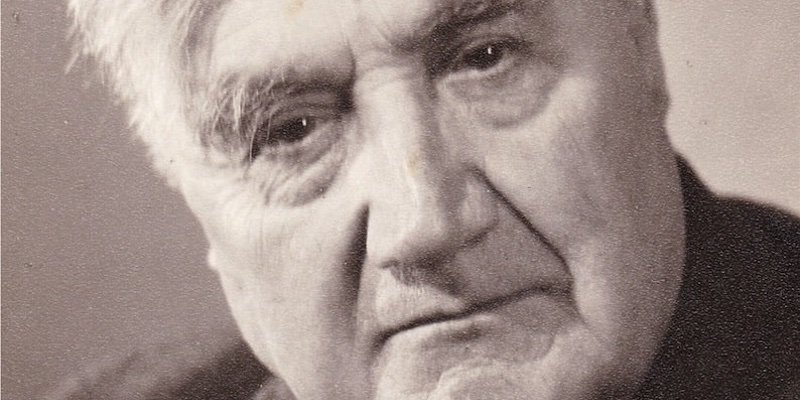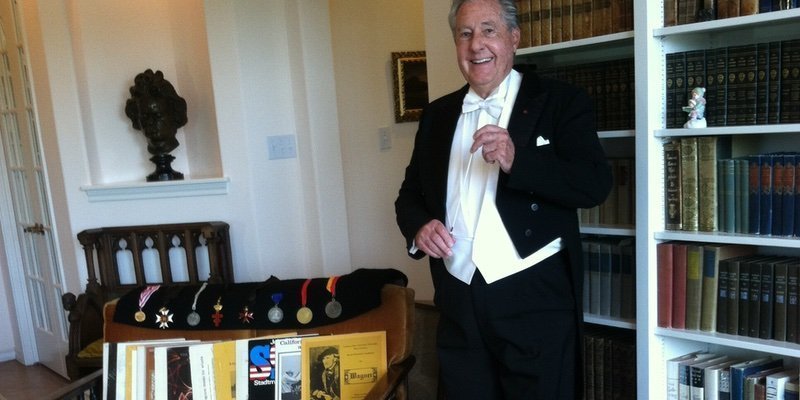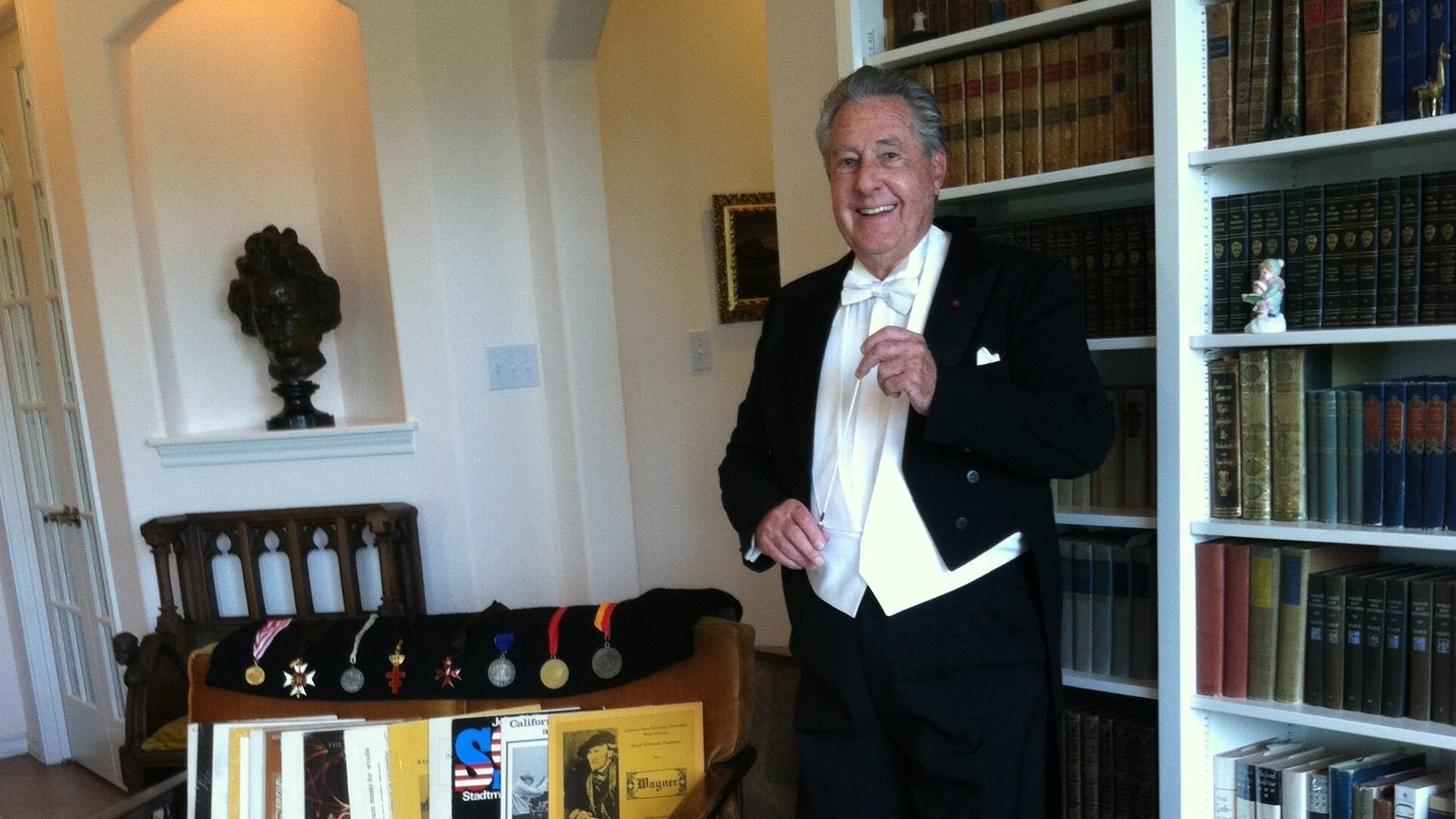The choice of every conductor is to be either an entertainer or a source of uplifting and enlightening the audience. This choice will determine the cultural identity of bands in

Vaughan Williams for Band: A Repertoire ListVaughan Williams for Band: A Repertoire List
I don't know whether I like it, but it is what I meant. A curated list of Ralph Vaughan Williams compositions for band.

Bach for Band: A Repertoire ListBach for Band: A Repertoire List
Every student should have the chance to experience performing the music of J.S. Bach. There are many transcriptions, at all levels, that can be programmed for our ensembles.
On the Bochsa RequiemOn the Bochsa Requiem
After Napoleon was first defeated by a coalition of European powers in 1814, the coalition restored the throne of France to Louis XVIII on 6 April 1814. Louis XVIII returned
On the Weber March in COn the Weber March in C
This original march for wind band, scored for flute, 2 oboes, 2 clarinets, 2 horns, 2 bassoons, 2 trumpets and a trombone, may be the final composition of this famous
On the Schumann Abschied zu singenOn the Schumann Abschied zu singen
This wonderful work for chorus and winds was composed after Schumann and his family moved to Dresden in December 1844. It was soon after this move that the health of
On the Mendelssohn Marcia funebreOn the Mendelssohn Marcia funebre
Recently, through the generosity of the staff at the Prussian National Library in Berlin, I received a copy of the autograph score of this beautiful original band composition by Mendelssohn.
On the Brahms Begräbnisgesang, op. 13On the Brahms Begräbnisgesang, op. 13
In 1857 Brahms became the conductor of the choral society at Detmold. The fine wind players available in this court are reflected in a number of Brahms’ compositions at this
On the Wagner Trauermusik [1844]On the Wagner Trauermusik [1844]
David Whitwell This score, consisting of music taken from Carl Maria von Weber’s opera, Euryanthe, arranged for large wind band in 1844 by Wagner, is one of the most important
The Conductor and his AudienceThe Conductor and his Audience
David Whitwell [2017] Written in honor of the retirement of Dr. Ronald Johnson from the University of Northern Iowa On the final day of my 2017 conducting tour of Italy

Essays – ContentsEssays – Contents
Essays The Maxime Principle: Thoughts on the origin of dynamic markings Tenuto and Fermata: Rebels Against the Tyranny of Notation On the Significance of the Title The Conductor and his
Right-Hemisphere Conducting, Nr. 6Right-Hemisphere Conducting, Nr. 6
How the Right-Hemisphere understands Harmony Somewhere in the dim distant reaches of my memory I recall being told of the modes in music that minor was sad and major was
Right-Hemisphere Conducting, Nr. 5Right-Hemisphere Conducting, Nr. 5
“Time” is not of our World Whosoever danceth not, knoweth not the way of life. Jesus Christ [1]Found in a Gnostic Hymn of the second century, quoted in Curt Sachs,
Right-Hemisphere Conducting, Nr. 4Right-Hemisphere Conducting, Nr. 4
When the hall is heard filled by the emotions created by the music, whose emotions are they?” First of all, some important facts about the emotions as pertains to conducting:
Right-Hemisphere Conducting, Nr. 3Right-Hemisphere Conducting, Nr. 3
Music is not an Art Object A number of early philosophers debated what is meant by “Art.” Do we mean by Art what the artist has in his mind, or

Right-Hemisphere Conducting, Nr. 2Right-Hemisphere Conducting, Nr. 2
How to Write a Love Letter For reasons reviewed in the first little essay in this series, here you are—the real you, trapped in the right-hemisphere of the brain which

Right-Hemisphere Conducting, Nr. 1Right-Hemisphere Conducting, Nr. 1
Why the Students don’t listen to you in Rehearsal In a recent paper, “Why Music Education is no longer about Music,” I reviewed for the reader the basic characteristics of
On the Significance of the TitleOn the Significance of the Title
Reprinted from “On the Significance of the Title,” The NBA Journal, Vol. LV, Nr. 2, Winter, 2015. In April 2015, I will be conducting an all-city honor band in San
Tenuto and Fermata: Rebels Against the Tyranny of NotationTenuto and Fermata: Rebels Against the Tyranny of Notation
For a million years or more, singers and instrumentalists playing on natural instruments made music freely with the sole goal of expressing their feelings. But once notation appeared the “rules”

The Maxime Principle: Thoughts on the origin of dynamic markingsThe Maxime Principle: Thoughts on the origin of dynamic markings
In a communication we recently received from Professor Maxime in Paris, she encouraged all instrumentalists to begin thinking of the Italian piano and forte symbols to mean relative degrees of
